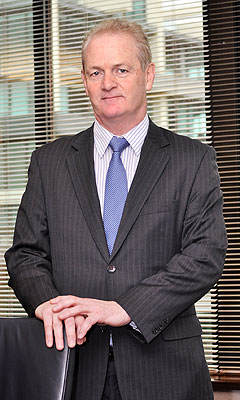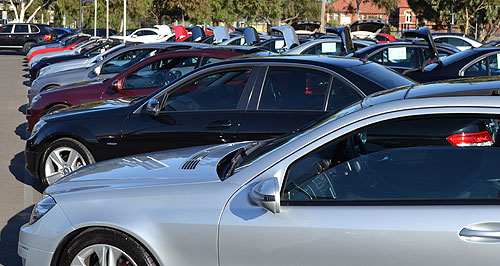Make / Model Search
News - General NewsCar buyers ‘changing rapidly’Winds of change: Car retailers are headed into uncharted waters as new-generation vehicle buyers look to other modes of transport. Motor industry warned of shakeout as new-gen car buyers change habits22 Jul 2015 By IAN PORTER THE new car market is about to undergo dramatic changes due to urban congestion and an indifferent attitude to car ownership by younger generations, according to a Victorian automotive industry leader. Victorian Automobile Chamber of Commerce chief executive Geoff Gwilym said the dealer network was already contracting. Mr Gwilym also said dealers needed to be aware of the need to band together to present a united front on political matters. Addressing a Victorian Automobile Dealers Association meeting of leading dealers from many brands, Mr Gwilym said the automotive industry was facing the same sort of revolution that had convulsed the printing industry over recent decades. “If, in 1960, someone would have told the printing industry that the basic principles of setting movable type using the principles established by Gutenberg five centuries before were no longer relevant, no one would have believed them,” he said. He said the automotive sector was facing a similar wave of change. “Changes to the drive capacity of vehicles, safety technologies and increased performance for less money are incremental changes that we can see coming,” he said. “These changes, of course, will change buying behaviors and attitudes that people have to cars.” The modern vehicle is no longer a reflection of a person’s wealth or social standing, he said. For people in Generation X (1960s to 1980s) and Generation Y (1980s to early 2000s), cars are more a necessity for travel and a means to an end. “These are the generations who live with cracked mobile phone screens, expensive clothing with no labels and a general disrespect for the middle classes – even though most of them come from there.”  Left: VACC chief executive Geoff Gwilym Mr Gwilym warned dealers that Gen X and Gen Y would be buying the next generation of new cars. Left: VACC chief executive Geoff Gwilym Mr Gwilym warned dealers that Gen X and Gen Y would be buying the next generation of new cars.“They buy almost everything on line, have poor brand loyalty and are likely to get most of their car buying advice via a blog, Facebook, LinkedIn, Twitter or Whirlpool.” Mr Gwilym said car ownership would become less attractive as more people opt to live in high-rise apartments in metropolitan and outer metropolitan areas. “These are mainly close to shopping centres and public transport and have limited infrastructure for parking and car use.” Pressure on new car sales was also coming from the burgeoning car-share sector. Mr Gwilym said the Go-Get company was growing at a rate of 45 per cent a year and already had 65,000 members and 2000 vehicles. The negative factors were increasing, although Mr Gwilym said no one knew for sure when urban concentration and transport congestion would see new car sales flatten out and then decline. Industry data indicated that the number of vehicle sales outlets across the country had declined from 4745 in 2012 to 4602 in 2014. This reflected a need to achieve economies of scale through larger premises and operations, as well as buying power and marketing efficiencies. And, while dealerships still were heavily reliant on skilled labour, that would change in coming decades. The way we sell, manage and service vehicles will be constantly under analysis, with every measure applied to removing labor costs while remaining relevant and profitable.” Mr Gwilym said the increasing concentration of the new vehicle industry meant that dealers had to work more closely together when presenting to governments. The VACC and VADA had invited the newly appointed chief of the Australian Automobile Dealer Association (AADA), Mr Bruce McDonald, to the lunch. “VACC is very keen to work with the new AADA,” Mr Gwilym said. He said almost half of all new and used car dealers were members of the VACC and around 80 per cent of new car dealers were members. “The two organisations share many of the same goals. “Having separate national organisations with competing messages is bad for all stakeholders and will not help government in setting industry policy. “We can do more, working together and ensuring we have coherent industry position. “VACC looks forward to sharing resources with AADA for the greater good of the two organisations.”  Read more |
Click to shareGeneral News articlesResearch General News Motor industry news |











Facebook Twitter Instagram